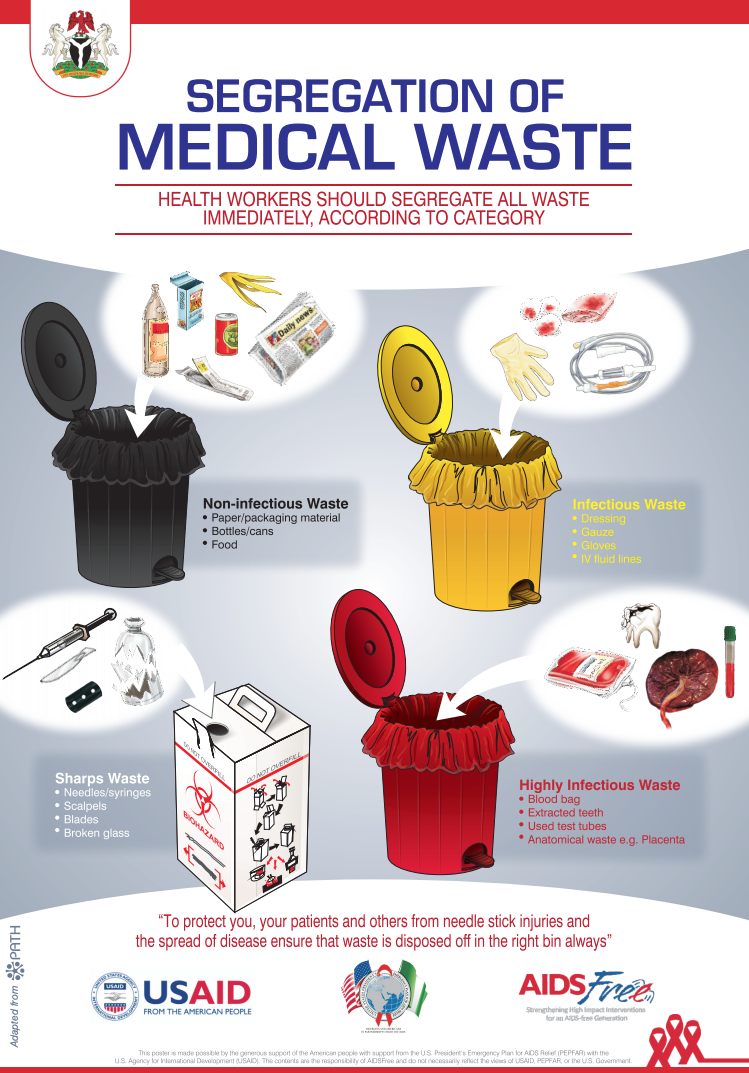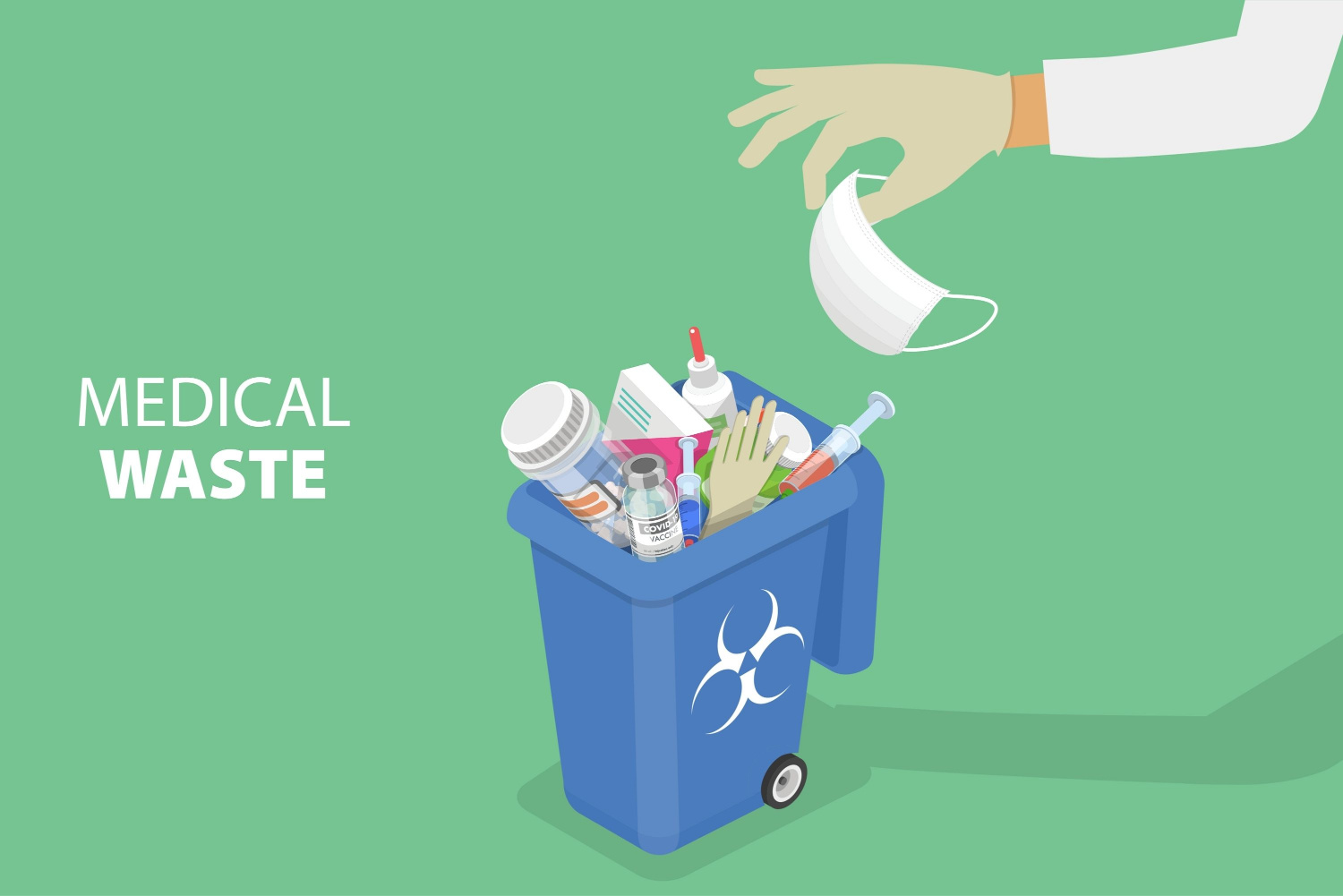Professional Medical Waste Disposal Service: Guarding Your Center and Neighborhood
Compliance and Rules for Medical Waste Disposal
Compliance and laws for clinical waste disposal play an essential function in making certain the safety and well-being of both healthcare experts and the basic public. Appropriate monitoring of clinical waste is important to avoid the spread of infections, secure the setting, and keep public wellness. These laws incorporate various aspects, consisting of the category and partition of clinical waste, appropriate storage and managing procedures, as well as transportation and disposal techniques.
Significance of Conformity
The relevance of conformity with laws for clinical garbage disposal can not be overstated. Appropriate disposal of medical waste is essential for ensuring the safety and health of medical care employees, individuals, and the public. Medical waste, that includes things such as made use of needles, polluted gloves, and biomedical waste, can posture significant health and wellness dangers if not handled and disposed of effectively.
Conformity with policies ensures that clinical waste is managed in a manner that decreases the capacity for exposure to unsafe compounds and infectious conditions - medical waste removal service. It assists avoid the spread of infections, such as HIV, liver disease B and C, and other bloodborne virus. Conformity likewise plays a vital duty in safeguarding the setting by stopping contamination of water sources, soil, and air
Failing to follow regulations can lead to severe repercussions for healthcare centers, consisting of fines, lawful action, and damage to their online reputation. Furthermore, non-compliance might compromise the health and wellness of health care employees, clients, and the area.
Compliance with policies for clinical waste disposal calls for adherence to specific standards and methods. These may consist of correct segregation, product packaging, labeling, and storage space of medical waste. It likewise includes making use of accepted disposal approaches, such as incineration, landfilling, or autoclaving, relying on the kind of waste.
Governing Agencies and Bodies
Regulative firms and bodies play a vital duty in looking after compliance with policies for medical garbage disposal. These companies are responsible for setting standards, methods, and guidelines to make sure the proper and risk-free handling of clinical waste. They impose and keep an eye on compliance to secure public wellness and the setting.
Among one of the most prominent regulatory companies in the USA is the Epa (EPA) The EPA is accountable for controling the storage space, transportation, treatment, and disposal of clinical waste. They develop standards for waste generators, transporters, and treatment centers to follow, making certain that all needed safety measures are taken to protect against the spread of conditions and contamination.
An additional vital governing body is the Occupational Security and Health And Wellness Management (OSHA) OSHA establishes regulations and requirements to shield workers from occupational threats, consisting of those related to medical waste. WasteX Medical Waste Disposal. They offer guidelines for the safe handling and disposal of clinical waste to safeguard workers in medical care facilities
Along with these federal agencies, individual states likewise have their very own regulative bodies that manage clinical waste disposal. These agencies may have their very own certain regulations and needs that need to be adhered to.

Classification and Segregation of Medical Waste
To guarantee proper management of clinical waste, it is crucial to identify and segregate it according to developed standards and procedures. medical waste disposal. Classification and partition play a vital duty in decreasing the risk of infection, protecting the atmosphere, and guaranteeing the security of healthcare workers and the public
Medical waste is identified into different groups based on its prospective risk level. These classifications include transmittable waste, pathological waste, sharps waste, pharmaceutical waste, chemical waste, and radioactive waste. Each group requires details handling, disposal, transportation, and storage space approaches to reduce the risk of direct exposure and contamination.
Partition of clinical waste involves dividing various sorts of waste at the resource. This process makes certain that waste with different hazard levels is not blended, lowering the capacity for cross-contamination and making disposal procedures more effective. Correct segregation is accomplished through using color-coded tags and containers, which help health care employees and waste monitoring employees take care of each kind and determine of waste properly.
In enhancement to category and segregation, health care centers have to additionally stick to local, state, and government regulations relating to clinical waste administration. These policies describe details requirements for storage, transportation, treatment, and final disposal of clinical waste, guaranteeing conformity and maintaining public health and safety and security.
Correct Storage and Taking Care Of Procedures
Appropriate storage and taking care of procedures play an important duty in guaranteeing the certified and secure monitoring of clinical waste. Clinical waste, that includes products such as made use of syringes, infected handwear covers, and expired medicines, WasteX Medical Waste Disposal can position major health and wellness and environmental risks if not taken care of correctly. It is vital for health care centers and various other generators of medical waste to carry out stringent storage space and handling protocols.
To start with, medical waste ought to be kept in long lasting, leak-proof containers that are particularly designed for this function. These containers should be identified with the universal biohazard symbol and words "clinical waste" to clearly suggest the contents. Additionally, the containers should be maintained securely near avoid any type of potential leak or splilling.
Furthermore, it is vital to set apart various kinds of clinical waste to stop cross-contamination. Sharps, such as needles and scalpels, must be stored in puncture-resistant containers to decrease the risk of injuries - WasteX Medical Waste Disposal. Chemical waste, such as disinfectants and solvents, need to be saved separately from various other sorts of medical waste to stop chain reactions or unsafe exposures

Transportation and Disposal Techniques
Healthcare centers must guarantee the secure transportation and appropriate disposal of their medical waste to follow laws and safeguard public health and wellness. Transportation and disposal approaches play a vital duty in stopping the spread of infectious diseases and decreasing the environmental effect of clinical waste.
To transport medical waste, medical care centers should utilize puncture-resistant and watertight containers that are identified with the biohazard icon. These containers need to be safely secured to stop any type of leakage throughout transport. Additionally, medical care centers must establish methods for the transportation procedure, consisting of using skilled workers and dedicated vehicles.
Once the medical waste reaches the disposal center, it goes through various techniques of therapy - WasteX Medical Waste Disposal. One typical technique is incineration, which entails melting the waste at high temperature levels to ruin pathogens and reduce the quantity of waste.
It is crucial for medical care centers to deal with licensed and allowed waste management firms to make certain proper transport and disposal of medical waste. These business have the know-how and sources to handle medical waste safely and in compliance with policies.
Conclusion
In conclusion, conformity with laws for clinical garbage disposal is of utmost value to guarantee public health and security. Regulatory firms and bodies play a vital function in applying these laws. Appropriate category and segregation of clinical waste, along with following suitable storage space and handling treatments, are vital to stop contamination and the spread of diseases. Sufficient transport and disposal techniques need to be implemented to minimize environmental impacts. On the whole, adherence to compliance and policies is essential to effectively take care of clinical waste.
Clinical waste, which includes products such as utilized needles, polluted gloves, and biomedical waste, can posture severe health risks if not handled and disposed of appropriately.
These groups include contagious waste, pathological waste, sharps waste, pharmaceutical waste, chemical waste, and radioactive waste.Segregation of medical waste includes dividing various kinds of waste at the source. Correct segregation is attained via the usage of color-coded tags and containers, which aid health care workers and waste administration workers manage each type and identify of waste correctly.
Chemical waste, such as solvents and anti-bacterials, need to be kept separately from various other types of clinical waste to prevent unsafe direct exposures or chemical responses.